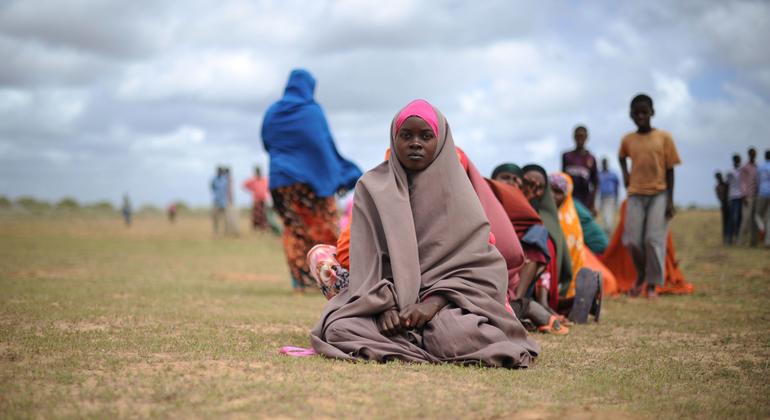“While I welcome the international attention on climate change’s impact on women and girls over the last decade, we must urgently also focus on the grave issue of violence against them which has been exacerbated by the climate crisis,” she told the UN Human Rights Council in Geneva.
Countries are examining the issue as part of the Council’s annual full-day discussion on the rights of women.
‘Move from rhetoric’
Ms. Bachelet spoke about how the climate crisis is putting women’s lives in danger, whether they are fleeing disasters or speaking out against the global emergency. She stressed the critical need for greater action.
“I recognise the need for deeper discussion, assessment, and analysis on these issues. But unless we move from rhetoric to concrete action – immediately – the lives, safety and dignity of millions of women and girls will continue to hang in the balance,” she said.
Women comprise 80 per cent of people uprooted by climate change, she said, citing the UN Environment Programme (UNEP). Displacement puts them at a much greater risk of violence, including sexual violence.
‘Tragic reality’
“While they sleep, wash, bathe or dress in emergency shelters, tents or camps, the risk of sexual violence is a tragic reality of their lives as migrants or refugees. Compounding this is the increased danger of human trafficking, and child, early and forced marriage, which women and girls on the move endure,” she said.
The High Commissioner listed examples of where this has played out, such as following Hurricane Katrina, the destructive and deadly storm that pummeled regions of the southern United States in 2005, particularly the city of New Orleans.
The rate of rape among women displaced to trailer parks rose nearly 54 times the baseline rate in the state of Mississippi for that year. Nepal also witnessed a four-fold increase in trafficking after the 2015 earthquake.
Environmental activists ‘silenced’
Furthermore, when climate change affects agriculture, the socioeconomic fallouts impact women and girls, making them more vulnerable to threats such as domestic violence, early or forced marriage, trafficking, and forced prostitution.
Displaced women who identify as LGBTQI+ (lesbian, gay, bisexual, trans, queer, or intersex) are also more likely to face elevated risks of violent abuse.
Meanwhile, thousands of women around the globe are also speaking out to fight climate change. These environmental rights defenders, who are working to protect lands, water, nature and communities, do so at great personal risk.
“They are criminalised and silenced. They are threatened and stigmatized. They are at additional risk of gender-based violence. And many are even killed,” said Ms. Bachelet.
She reported that in both Mexico and Central America, nearly 1,700 acts of violence were recorded against women environmental rights defenders between 2016 and 2019.
Acknowledge the link
Ms. Bachelet called for putting the rights of women and girls “front and centre” in climate change policies.
She outlined five steps countries can take, starting with acknowledging that climate change and violence against women are linked.
Women must also be fully involved in decision-making around the climate issue, as their insights, lived experience and guidance, will lead to both better rights protection as well as more effective climate action.
Governments will also have to strengthen their gender-responsive environmental and disaster risk reduction policies and programmes.
Zero impunity
“This will involve ensuring women’s leadership in disaster risk management, providing sufficient financial resources and putting in place effective monitoring mechanisms,” she said. “And it will imply guaranteeing that, in times of disaster, women have access to healthcare, sexual and reproductive health, support services, shelter and security.”
The UN rights chief urged countries to enhance accountability, because “there must be zero impunity for perpetrators of gender-based violence, no matter if they are spouses, family members, religious leaders, relief workers or government officials.”
Honour your obligations
Finally, governments must take urgent steps to respect, protect and fulfil their human rights obligations to women and girls, and in particular to women environmental activists.
“This includes guaranteeing their rights to freedom of expression, assembly, association, and participation in decision-making at all levels,” she said, adding “and they must also provide women with redress and accountability for threats and harms that they endure.”




